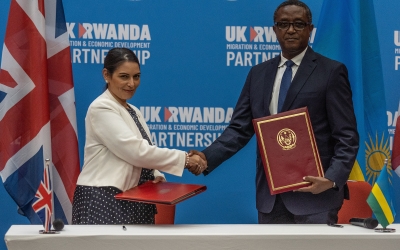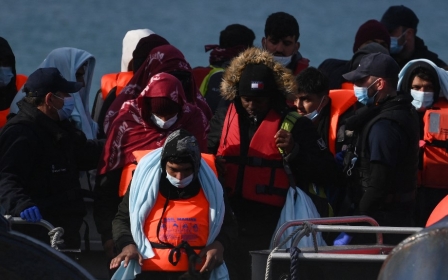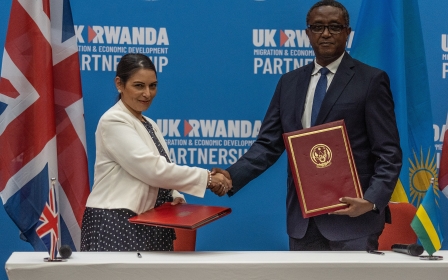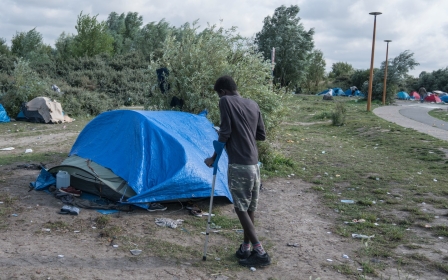UK court says flight taking asylum seekers to Rwanda can go ahead
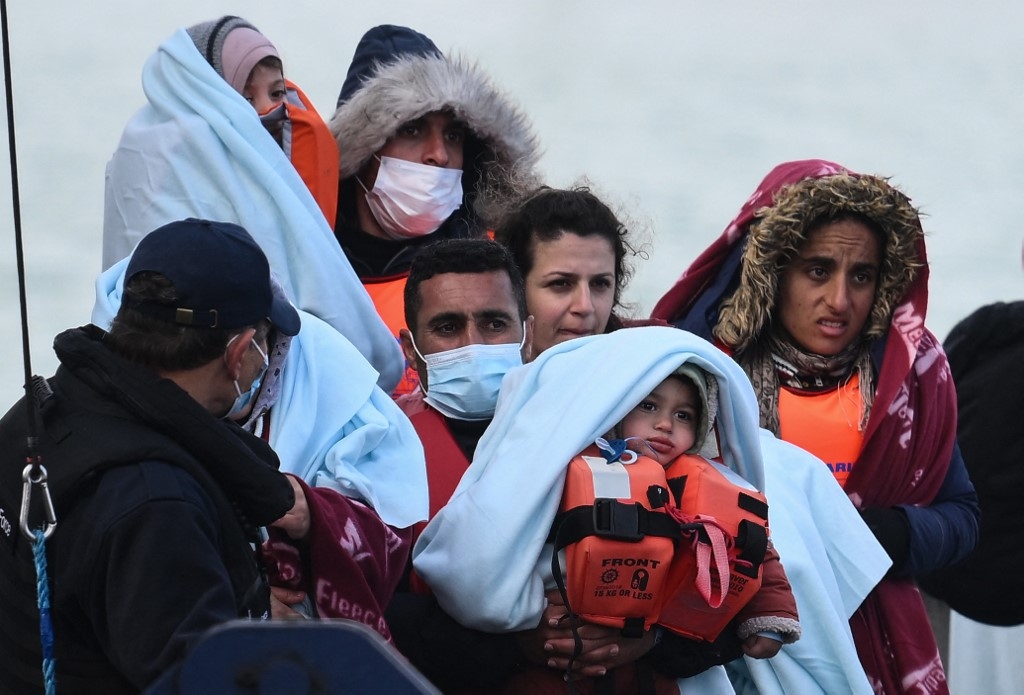
The UK Court of Appeal has ruled that the first flight to take asylum seekers to Rwanda can go ahead on Tuesday, despite last-gasp legal attempts and protests against the "catastrophic" policy.
A chartered plane was to leave an undisclosed airport in London overnight and land in Kigali on Tuesday, campaigners said after the UK judges rejected an appeal by charities and a trade union against the deportations.
Claimants had argued that a decision on the policy should have waited until a full hearing on the legality of the policy next month.
A High Court judge refused on Friday to grant a temporary injunction to block the flight, and on Monday three justices on the Court of Appeal upheld that decision.
A second legal challenge at the High Court was also later rejected, with judge Jonathan Swift saying everyone on the flight had been given access to a lawyer to challenge their deportation.
Human rights groups say the policy is inhumane and will put asylum seekers at risk.
Judge Rabinder Singh said on Monday that the Court of Appeal could not interfere with the High Court judge's "clear and detailed" judgement and refused permission for further appeal.
The authorities have not provided details of those selected for deportation, but the number of people scheduled to leave on the plane, which charities said originally included people fleeing Afghanistan and Syria as well as Iran and Iraq, had now fallen to less than a dozen.
Public and Commercial Services Union (PCS) chief Mark Serwotka said on Sunday that it would be "an appalling situation" if Tuesday's removals were subsequently found to be illegal at the full hearing.
Home Secretary Priti Patel should wait for the July hearing if she "had any respect, not just for the desperate people who come to this country, but for the workers she employs", Serwotka told Sky News.
'All wrong'
In Geneva, UN refugee chief Filippo Grandi called the UK government policy "all wrong" and said it should not be "exporting its responsibility to another country".
Church of England leaders, including its most senior cleric, the Archbishop of Canterbury Justin Welby, reiterated their criticism of the policy as "one that should shame us as a nation".
In April, Prime Minister Boris Johnson had announced that some migrants who arrived without authorisation would be sent to Rwanda where their applications will be processed.
Those who fail in their asylum bids in Rwanda will be offered the chance to apply for visas under other immigration routes if they wish to return to the country, but they could still face deportation, the BBC reported.
In 2021, Middle East and North African countries made up 11 of the top 20 countries for those who came to the UK via small boats, according to data from the Home Office, MEE reported last month.
Iran was the highest with 7,874 arrivals, followed by Iraq with 5,414. Syria came in fourth.
Johnson's policy - which will affect people from countries such as Syria, Iraq, Sudan and Yemen - was widely condemned by politicians, charities, and rights groups and is expected to have significant impacts on those fleeing persecution.
"We cannot sustain a parallel illegal system. Our compassion may be infinite, but our capacity to help people is not," Johnson said at the time.
Middle East Eye propose une couverture et une analyse indépendantes et incomparables du Moyen-Orient, de l’Afrique du Nord et d’autres régions du monde. Pour en savoir plus sur la reprise de ce contenu et les frais qui s’appliquent, veuillez remplir ce formulaire [en anglais]. Pour en savoir plus sur MEE, cliquez ici [en anglais].


